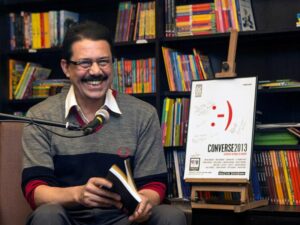Deep within the embrace of Assam, India lies a tale of grind, resilience, and the unwavering spirit of a woman who dared to become a voice for the voiceless. Dr. Purnima Devi Barman is a wildlife biologist who committed herself to preserving the Greater Adjutant Stork. In 2022, the United Nations recognized her efforts by presenting her with the esteemed Champions of the Earth Award.
Inspired by childhood events
Dr. Purnima Devi Barman’s journey began in the tranquil wetlands of Kamrup. Far away from the busy streets of a city, she grew up with her grandparent’s house.
Growing up, she lived a life with nature and spent her free time listening to birds. From a very early age, Barman’s grandmother filled her young mind with bird songs.
Storks
This large stork breeds in open farmland and wetlands, with stick nests in trees and buildings. It forages in grasslands and agricultural areas and thrives on thermals.
Full-grown storks are only a thousand in number. A century back, it used to be one lakh. The cause of the decline is because of human intervention in the wetlands.
The plight of the Greater Adjutant Stork, a once-thriving scavenger is threatened by habitat loss and human persecution. Witnessing it ignited a fire within her.
This majestic bird is often misunderstood for its ungainly appearance and regarded as a bad omen. However, these scavengers were crucial in the ecosystem, acting as nature’s sanitation crew. Yet, the numbers went down.
Dr. Purnima Devi Barman’s idea behind Hargila Army
Purnima Devi Barman soon realized she must gather scientific knowledge to tackle the mindsets of the locals. She received a lot of criticism when she first started but that did not stop her from thinking of them. She knew changing the narrative wouldn’t be easy and set her mind to finding a way. She put her Ph.D. on hold to preserve the wetlands.
She realized it was a big task and would not be able to accomplish the goals alone. She needed to change her approach and build her a team. She gathered like-minded people from the community.
Community conservation is key to preserving storks and that could be only achieved with sustainable activities. The Hargila Army’s success proves that local communities can be powerful agents of change when engaged and empowered.
Education is the foundation: Dispelling myths and fostering understanding is crucial for garnering support for conservation efforts. Finding scientific reasons to dismiss myths and looking for solutions to the problem is the only way to steadfast change.
Innovation is essential: Dr. Purnima Devi Barman came up with creative solutions, like building artificial nesting platforms, demonstrating the importance of thinking outside the box.
Human Intervention in restoring wetlands: She started cleaning the areas next to the wetlands by removing plastics and waste. She made efforts to restore the active ecosystem of that place.
Barman’s success is a testament to the power of partnerships between local communities, researchers, and policymakers.
Launch of Hargila Army
Dr. Purnima Devi Barman refused to be a mere observer. She discovered a deep understanding of the local community. In 2007, she founded the “Hargila Army,”a grassroots movement named after the Assamese word for the Stork. She hired an all-female force of local women who became the backbone of her mission.
The Hargila Army tackled the problem head-on. They embarked on a mission to educate villagers about the vital role of the Storks in maintaining the health of the wetlands. Barman, with her gentle persuasion and scientific expertise, worked on raising awareness. She dispelled myths surrounding the birds, replacing fear with compassion and understanding.
Conservation
Conservation isn’t just about awareness. Dr. Purnima Devi Barman knew this and paved the way for the Hargila Army to become the architects of change.
They planted trees to restore degraded habitats, created artificial nesting platforms to compensate for lost trees, and even built bamboo fences to protect chicks from predators. Their efforts turned out fruitful, as the once-silent skies around the villages echoed with the calls of thriving Stork colonies.
Dr. Purnima Devi Barman’s impact transcended geographical boundaries. She collaborated with researchers, and conservationists, and held conferences to work on this issue. She shared her knowledge and story and inspired others to join the fight.
Awards and Recognitions
Barman’s work with the Hargila Army was recognized nationally and internationally, earning her the Whitley Award often termed the “Green Oscar.”
But the most significant recognition came in 2022 when the United Nations Environment Programme (UNEP) felicitated her with the prestigious Champions of the Earth Award in the “Entrepreneurial Vision” category.
The way forward
Barman’s story became a beacon of hope, showcasing the power of community-driven conservation and the transformative impact of a single, persistent voice. As the world drifts away from nature and its fauna, Purnima reminds the world how we must restore what we have destroyed.
Dr. Purnima Devi Barman’s legacy is not just about saving a bird; it’s about restoring balance to an ecosystem. Empowering communities, and proving that even the most formidable challenges can be tackled with passion and collaborative action.
Her story reminds her that every educated individual is armed with knowledge. That knowledge should be put to use. As we face the growing challenges of climate change and environmental degradation, Purnima Devi Barman’s story stands as an example of true leadership.
It reminds us that even the smallest acts of courage and compassion can ripple outwards; creating a wave of positive change that can heal our planet and protect its inhabitants. Let us be inspired by her journey and take up the mantle of champions for the Earth, one step, one voice, one community at a time.
Unravelling a billion untold stories, one chapter at a time, Humans of Northeast takes you on a discovery through vibrant Northeast India – a land rich in people, places, and culture. Ready to immerse yourself in more such stories? Visit our page HONEI to read more about narratives that inspire and uplift.






